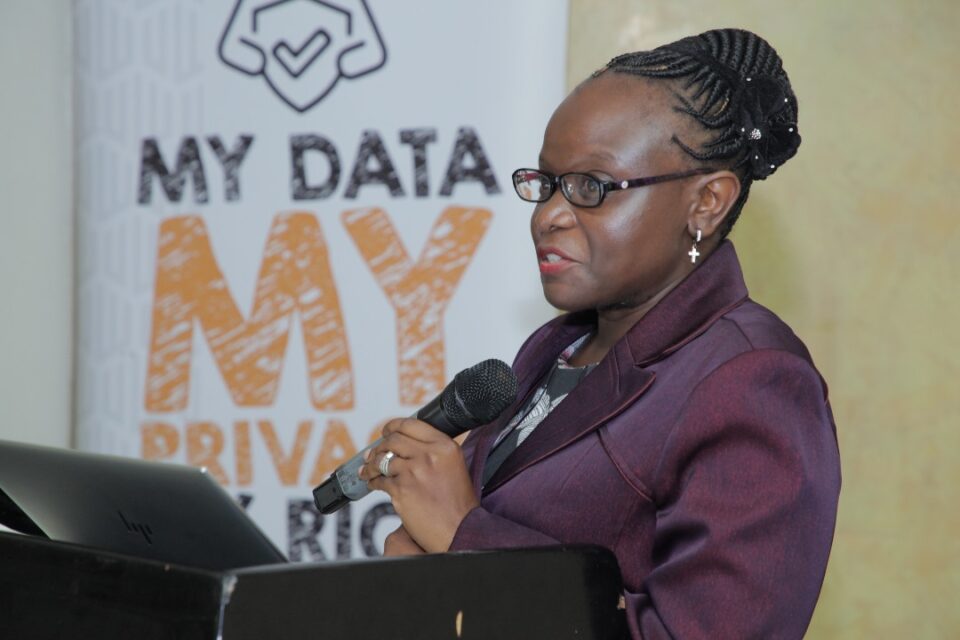The Essential Role of Cost-Free Access to Personal Data in the Digital Age

By Christopher Kalema and Allan Kigozi
In the age of information, where digital footprints and data profiles shape our online interactions and decisions, the right to access personal data has emerged as a pivotal aspect of modern privacy and autonomy. As our lives intertwine with the virtual world, the importance of providing individuals with cost-free access to their own personal data has taken center stage. Beyond convenience, this right is integral to upholding individuals’ agency over their digital identities, fostering transparent relationships between those who collect or process data and the owners of the data.
The concept of data empowerment cannot be overstated. In an era where data drives decisions and algorithms tailor our online experiences, individuals must have the ability to access their personal data without any financial barriers. This access goes beyond mere convenience; it is about reclaiming ownership over one’s digital footprint. As individuals, we deserve to understand what data is being collected about us, how it is being used, and whether it accurately represents our online personas.
What are the legal and ethical considerations?
Internationally, data protection laws such as the European General Data Protection Regulation (GDPR), which has set a global standard for data protection, underscores the importance of cost-free access to personal data through Article 15, Section 4, which specifically mandates the right of access by the data subject. Closer to home, local data protection legislation underscores the same fundamental right, section 24(1) of Uganda’s Data Protection and Privacy Act of 2019, along with regulation 35 of the Data Protection and Privacy Regulations of 2021, establish that individuals possess the inherent right to access their personal information without the hindrance of any financial barriers. These legislative frameworks reflect the acknowledgement that personal data is intricately linked to an individual’s identity and privacy, granting them the authority to review, verify, and correct the information that organizations collect.
Privacy is a Right, not a Commodity!
The principles enshrined in the above regulations underscore not only the legal obligation but also the ethical imperative of ensuring that access to personal data is free from any financial obstacles. The principle is clear: data collectors, controllers, and processors must not capitalize on customers’ right to privacy for financial gain. The ethical responsibility of safeguarding personal information extends beyond profit-making motives. It underscores the need for organizations to prioritize privacy as a fundamental right, refraining from exploiting it as a revenue stream. By doing so, they uphold the principles of transparency, fairness, and empowerment within the digital ecosystem.
Lycamobile Uganda’s Data Access Fee Controversy
One notable case that exemplifies the significance of cost-free access to personal data is the scenario involving Lycamobile Uganda. A recent investigation by Unwanted Witness, a leading advocate for digital rights and online freedoms in Uganda, brought to light a concerning clause within Lycamobile Uganda’s privacy policy. The investigation revealed that the company enforces a data access fee of UGX43,000 (approx. £10, $12) on individuals seeking to access the information Lycamobile holds about them. This revelation raises profound concerns about the intersection of data privacy, individual rights, and corporate practices.
Upon thorough review of Lycamobile Uganda’s privacy policy, Unwanted Witness identified a potential conflict with both Section 24 (1) of Uganda’s Data Protection and Privacy Act, 2019 and Regulation 35 of the Data Protection and Privacy Regulations, 2021 that mandate that data subjects (customers) are entitled to access their personal information free of charge.
How Does Lycamobile Uganda’s Data Access Fee Shape Broader Challenges?
While the case of Lycamobile Uganda’s data access fee exposes a singular instance, it sets the stage to explore the far-reaching consequences that such barriers might pose. Beyond the immediate financial burden, this practice gives rise to an array of intricate challenges that extend to the very heart of data protection, privacy, and individual rights.
One notable concern involves dissuading individuals from delving into the data amassed about them, thereby impeding their capacity to manage their information and make well-informed choices. Moreover, these challenges obstruct the much-needed transparency that empowers individuals to hold organizations accountable for their handling of data. This is particularly troubling as it can disproportionately impact those with limited financial resources, thereby erecting a digital divide that contradicts the fundamental principle of equal protection enshrined in data privacy regulations. Additionally, these hurdles hinder individuals from verifying the accuracy of their data, allowing inaccuracies to persist unchecked and potentially compromising the overall precision of their data profiles.

Unwanted Witness’s Call for Change in Lycamobile Uganda’s Privacy Policy
Considering the aforementioned challenges, Unwanted Witness requested Lycamobile Uganda to undertake a comprehensive review of its privacy policy. “In the interest of promoting compliance with the Data Protection laws of Uganda and fostering a climate of trust and transparency with customers, we implore Lycamobile to amend the privacy policy to permit customers the fundamental right to access their personal information without incurring any charges,” says Allan Kigozi Sempala, the Head of Legal Department at Unwanted Witness.
The essential role of cost-free access to personal data in the digital age cannot be overstated. The Lycamobile Uganda case serves as a stark reminder that data protection is not a one-sided endeavour; it requires active commitment from companies to ensure that individuals can exercise their data rights without facing financial barriers. As we navigate the intricacies of a data-driven world, upholding cost-free access is not only a legal and ethical obligation but a demonstration of respect for the right to privacy, and the principles that underpin a just and equitable digital society.




